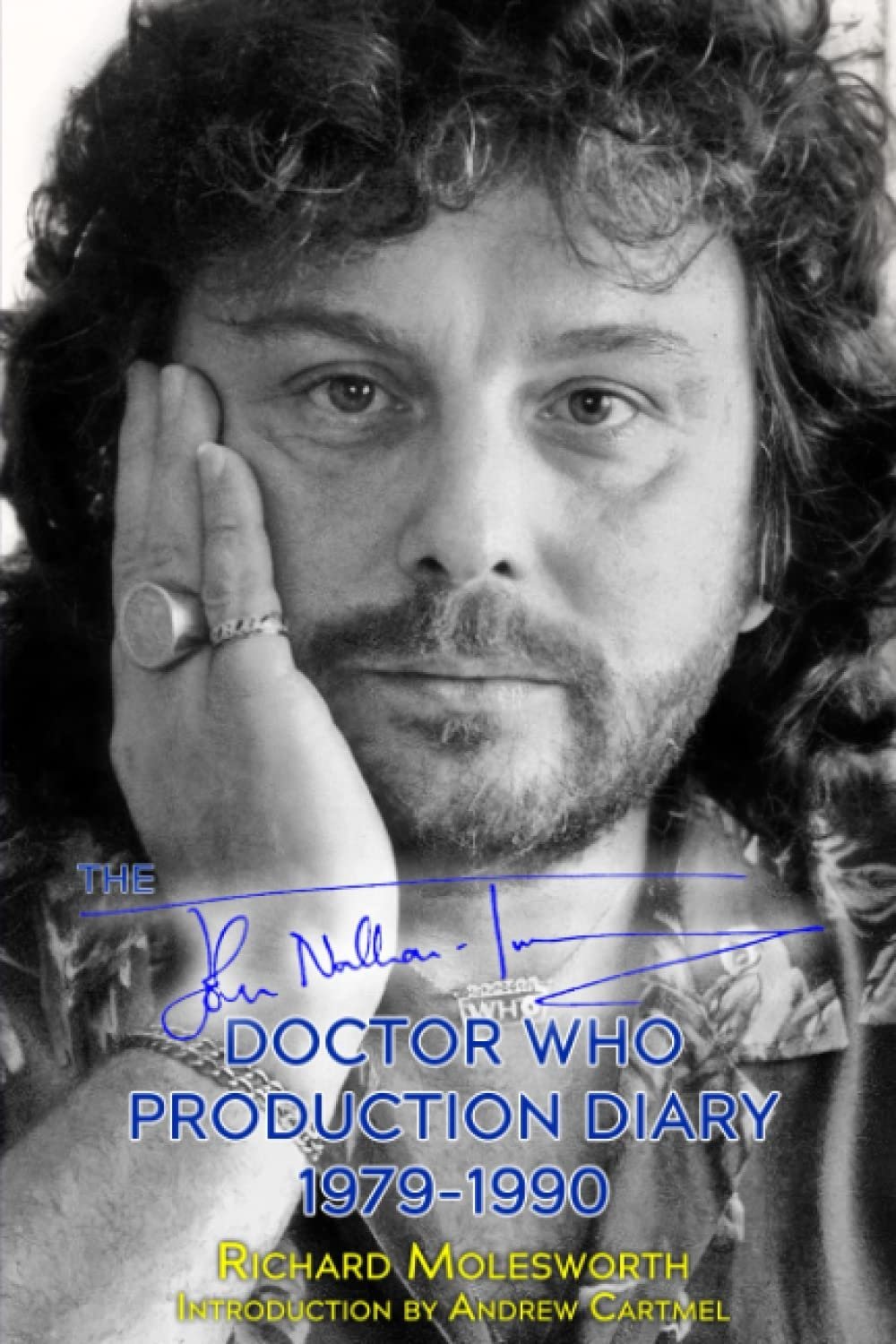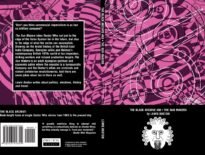What do Doctor Who fans do when their planet is in the grip of a pandemic and they have to isolate in lockdown, with less freedom of movement than Amy inside the Pandorica? Some, according to a report in the London Times, built a replica movie Dalek from scratch. Richard Molesworth wrote an excellent book, The John Nathan-Turner Doctor Who Production Diary, 1979-1990, published in 2022.
Nathan-Turner died tragically young, in his early 50s. His partner, Gary Downie, survived him for a few years before also passing away before his 60th birthday. As we all know, production on the original series of Doctor Who ceased in 1989 and Nathan-Turner’s last, thankless task, before being made redundant by the BBC, was to clear out the Doctor Who production office. The BBC wanted the office space and everything – scripts from 1963 onwards, letters, videos, production diaries, photos, props – was going to be chucked in a skip if JNT didn’t remove it. He and Gary Downie bundled everything in bin bags and left this huge archive in his garage, where much of it stayed until it was eventually offered to the Restoration Team, of which Richard Molesworth is a member. Molesworth discovered an old file of JNT’s expenses receipts: not, he admits, “on first examination the most exciting pieces of Doctor Who paperwork I’d ever come across”, but closer examination revealed interesting titbits: for example, working lunches with Tom Baker, Peter Davison, and Colin Baker, which, when cross referenced with production dates, made it possible to recreate JNT’s production diaries, day by day, from his first planning of Season 18 to his exit from the BBC with the bin bags, 11 years later. And that was Richard Molesworth’s lockdown project.
The Production Diary is an impressive and fascinating piece of work. It’s also an excellent read. Every day of JNT’s 11-year stewardship of Doctor Who is reproduced through: the first publication of original documents; letters; memos of phone conversations with directors, actors, writers, and other production teams; and judicious and extensive quotations from previously published interviews and writings by such people as JNT, Eric Saward, Colin Baker, and Peter Davison.
I found the book deeply absorbing and was impressed by many things. One was how hard JNT actually worked: six days a week on the show, long into the evenings, and often ending in the BBC bar after a studio recording. Another is how much JNT cared about the programme and how jealously he protected it from idiot ideas from other production companies, who wanted to use the TARDIS, the Daleks, the Doctor, and K9 in comedy skits which would send them up and damage the brand. I was impressed with how much this book, like Andrew Cartmel’s Script Doctor, brought the 1980s back to life: as you read it, you are back in the BBC that cares so much, in 1979, about Doctor Who and gives JNT its blessing as he delivers nine million viewers with Peter Davison; you relive how the BBC turns against him suddenly in 1985 and, after gradually sanctioning Doctor Who’s resurrection, can’t wait to get shot of it.
I found the book, in places, a very sad read. JNT is a controversial figure in fandom. Those of us who were active in fandom in the 1980s recall how much he was vilified by the fan press – which he diligently read and often generously supported – not least for taking so much time out to attend financially rewarding conventions in the United States. And Molesworth carefully documents the excitement and fun of American conventions, and the corresponding disappointment of British fans bemoaning the impossibility of getting actors to attend when they were all across the pond. What is clear from this book, and wasn’t, as I remember, reported at the time, was that American conventions were often commercial ventures that actually paid their guests quite handsomely and treated them royally: British conventions were usually cash-strapped things which might pay your travel expenses if you were lucky.
Fans didn’t, in the 1980s, give enough credit to the fact that actors and writers – and even JNT – were human beings who had to make a living, and who understandably thought that a glamorous trip to the USA might be a bit more exciting than a Saturday spent in a rainy Streatham on your one day off that week.
Molesworth’s book presents JNT as a fundamentally decent and caring man who was committed to the show and was shoddily treated by the BBC. He comes across as a person who is as flawed as the rest of us but one with fine qualities, not least of loyalty, kindness, and hard work. Although, like so many of us, I read almost everything about Doctor Who that I can lay my hands on, there is much in the Production Diary that is new to me. It is a great book, a good read, and, weighing in at 425 pages, dashed good value for money. Oh, and it has a good introduction by Andrew Cartmel. Buy it. Read it. Enjoy it.
The John Nathan-Turner Doctor Who Production Diary 1979-1990 is published by Telos available as an ebook or as a physical book from Amazon.



